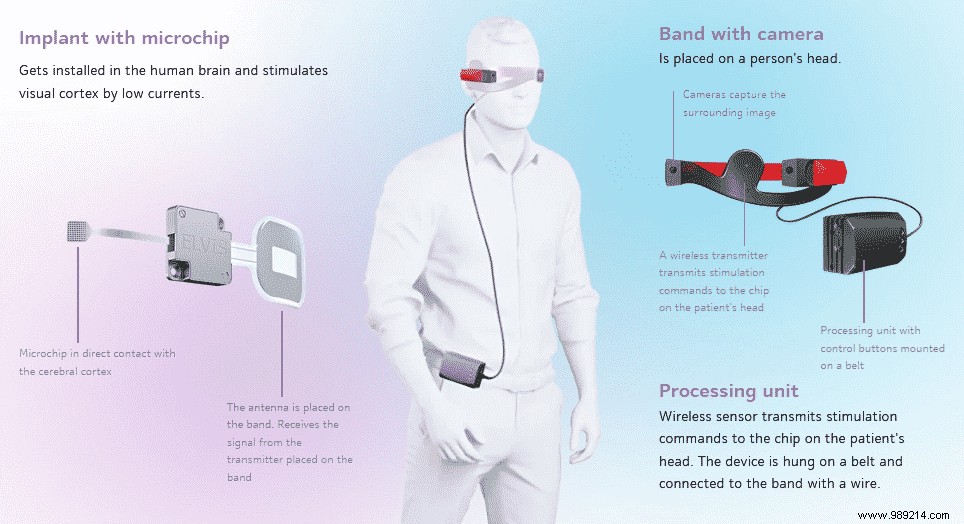In Russia, scientists have implanted a neural chip in the brain of a baboon. This research is part of the ELVIS program, the ultimate goal of which is to restore sight to blind people.
Currently, brain implants are shaking up the scientific world. In December 2021, Elon Musk for example declared that Neuralink would proceed to the first implantations in humans from 2022. Remember that this project aims to make effective brain-machine interfaces wireless, allowing in particular to control computers, drones and other prostheses. This will also treat brain disorders such as Parkinson's disease.
On Facebook on January 25, 2022, the Russian-based Sensor-Tech Lab meanwhile posted an article and a series of photos. According to this publication, neurosurgeons and doctors have successfully implanted a neural chip in the brain of a blind baboon with the aim of enabling him to see. This research is part of the ELVIS (ELectronic VISion) program, whose goal is to give sight to humans blind from birth or to those who have lost it.
If the program were actually applied, the beneficiaries would have to meet two conditions:be between 24 and 65 years old and have a brain in full possession of its cognitive abilities .
The implant in question is located in the brain and with the help of a camera, the latter should be able to read and transfer the contours of objects in waves to the brain through a sensor. In other words, it allows a partial overlapping of the view . Nevertheless, scientists gradually want to approach a quality worthy of that of sighted people. As shown in the diagram below, the camera capturing the images is on the head, fixed by means of a removable headband.

If the operation on the baboon is already a success in itself, the Russian scientists are now planning a dozen more tests, mainly to check whether or not the animal is capable of identifying geometric shapes . He will therefore have to fit objects of different shapes into compatible spaces, a bit like the game for children. For scientists, this is the main way of knowing how the neural implant will adapt to the brain of the baboon.
If these first tests are successful, human clinical trials should begin in 2024 . Russia will then support a market launch for the general public by 2030. Finally, the device should cost around 70,000 dollars, but the Russian government is already planning financial aid.